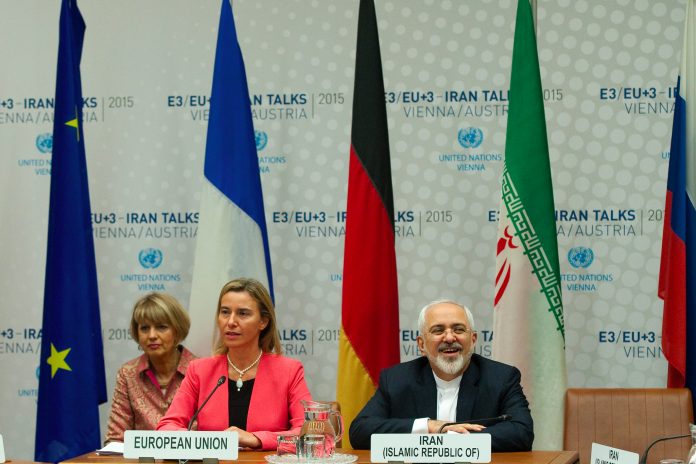United States President Donald Trump on August 6 pulled Washington out of the 2015 Joint Comprehensive Plan of Action (JCPOA) with Iran, but left the door open to a new nuclear deal. However, this is not likely to happen any time soon.
“The Iranian regime faces a choice,” Trump said in a statement. “Either change its threatening, destabilizing behaviour and reintegrate with the global economy, or continue down a path of economic isolation.”
“I remain open to reaching a more comprehensive deal that addresses the full range of the regime’s malign activities, including its ballistic missile programme and its support for terrorism,” added Trump.
Until there’s a new deal a first phase of US sanctions against Iran go into effect. The sanctions target Iran’s access to US banknotes and various key industries like cars and carpets. The second phase of US sanctions, which take effect November 5 and will block Iran’s oil sales.
‘American bullying’
Iran’s Foreign Minister Mohammad Javad Zarif is not pleased. He accused Trump of “bullying” and of being isolated in his hostility to the Islamic Republic.
“Of course, American bullying and political pressures may cause some disruption, but the fact is that in the current world, America is isolated,” Zarif told reporters, according to the semi-official ISNA news agency.
As reported by Agence France-Presse (AFP), Iran’s currency lost around half its value since Trump’s announcement.
Tension is now growing inside Iran, which has seen days of protests and strikes in multiple towns and cities over water shortages, high prices and wider anger at the political system.
“Of course, American bullying and political pressures may cause some disruption, but the fact is that in the current world, America is isolated,” Zarif told reporters, according to the semi-official ISNA news agency.
EU Blocking Statue
In a press release on August 6, the European Commission announced that the European Union’s updated Blocking Statue enters into force on August 7 to mitigate the impact on the interests of EU companies doing legitimate business in Iran.
The updated Blocking Statute is part of the European Union’s support for the continued full and effective implementation of the the Iran nuclear deal, including by sustaining trade and economic relations between the EU and Iran, which were normalised when nuclear-related sanctions were lifted as a result of the JCPOA.
A meeting between France, Germany and the UK, as well as Russia, China and Iran was held in Vienna on July 6. It was chaired by the EU’s High Representative/Vice-President Federica Mogherini. They all reiterated their commitment to the full and continued implementation of the nuclear deal.
According to a joint statement issued by Mogherini and the German, French and British foreign ministers, the Iran nuclear deal is “working and delivering” on its goal to ensure Iran’s nuclear programme remains exclusively peaceful.
“It is a key element of the global nuclear non-proliferation architecture, crucial for the security of Europe, the region, and the entire world,” they said in the statement. “We expect Iran to continue to fully implement all its nuclear commitments under the JCPOA.”
“We are determined to protect European economic operators engaged in legitimate business with Iran, in accordance with EU law and with UN Security Council resolution 2231. This is why the European Union’s updated Blocking Statute enters into force on 7 August to protect EU companies doing legitimate business with Iran from the impact of US extra-territorial sanctions.”
“Preserving the nuclear deal with Iran is a matter of respecting international agreements and a matter of international security.”

